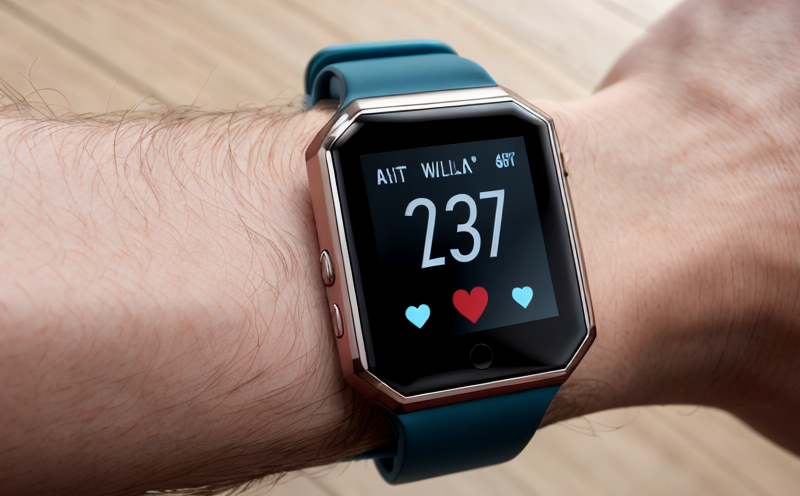Data Encryption and Privacy Testing in Digital Health Devices
The digital health device market is rapidly evolving, driven by advancements in technology and increasing demand for wearable devices. These devices are transforming healthcare, enabling continuous monitoring of vital signs, medication adherence, and more. However, with this growth comes the critical need to ensure data security and privacy, particularly given the sensitive nature of personal health information.
Data encryption plays a pivotal role in safeguarding digital health device data from unauthorized access. Encryption ensures that only authorized users can decrypt and access the stored or transmitted data. This service involves testing the effectiveness of encryption algorithms used within wearables to ensure compliance with international standards such as ISO/IEC 27031, which provides guidelines for information security management.
Privacy testing is equally important in digital health devices to protect patient data against breaches and misuse. This includes ensuring that personal health information is not exposed through vulnerabilities in the device’s software or hardware components. Compliance with regulations such as HIPAA (Health Insurance Portability and Accountability Act) and GDPR (General Data Protection Regulation) is essential for maintaining trust between patients and healthcare providers.
During testing, we simulate various attack scenarios to identify potential weaknesses in the encryption algorithms and privacy controls. This process involves analyzing key exchange protocols, data storage mechanisms, and transmission methods to ensure they meet stringent security requirements. Our team of experts uses cutting-edge tools and techniques to conduct these tests, ensuring comprehensive coverage of all relevant aspects.
Our service also includes providing detailed reports that outline the findings from our testing efforts. These reports serve as valuable resources for device manufacturers and healthcare providers, helping them understand any areas where improvements are needed. By identifying and addressing these vulnerabilities early in the development process, we help ensure that digital health devices meet rigorous security standards.
Compliance with regulatory requirements is a cornerstone of our testing process. We ensure that all tests align with relevant international standards such as ISO/IEC 27031 for information security and ANSI/AAMI EC84:2016 for medical device cybersecurity. Additionally, we work closely with clients to ensure their products meet specific regional requirements, including those set forth by FDA (Food and Drug Administration) in the United States.
In summary, our Data Encryption and Privacy Testing service is designed to provide peace of mind regarding the security of personal health information stored or transmitted through digital health devices. By leveraging our expertise and state-of-the-art methodologies, we help ensure that these devices operate securely and reliably, fostering trust between users and healthcare professionals.
Scope and Methodology
| Aspect | Description |
|---|---|
| Data Encryption Algorithms | Testing the robustness and efficiency of encryption algorithms used within wearables. |
| Key Exchange Protocols | Evaluating the security of methods employed to exchange cryptographic keys securely. |
| Data Storage Mechanisms | Assessing the integrity and confidentiality of data stored in wearables. |
| Transmission Methods | Ensuring secure transmission of data between devices and external systems. |
Benefits
Data encryption and privacy testing offer numerous advantages to manufacturers, healthcare providers, and patients alike. By ensuring robust security measures are in place, we can mitigate the risk of data breaches and unauthorized access. This not only protects sensitive personal health information but also enhances user confidence and trust.
For manufacturers, compliance with international standards such as ISO/IEC 27031 is crucial for maintaining a competitive edge and avoiding potential legal issues. Our service helps ensure that digital health devices meet these stringent requirements, reducing the likelihood of recall or product liability lawsuits.
Healthcare providers benefit from secure data handling practices, which contribute to improved patient care and compliance with regulatory mandates. By leveraging our testing services, they can demonstrate their commitment to privacy and security, thereby enhancing their reputation in the industry.
Patients are the ultimate beneficiaries of secure digital health devices. They gain peace of mind knowing that their personal information is protected from potential threats. This fosters greater trust between patients and healthcare providers, ultimately leading to better health outcomes.
Eurolab Advantages
At Eurolab, we pride ourselves on offering comprehensive testing services tailored specifically for the digital health sector. Our team of experts brings extensive experience in medical device testing, ensuring that our clients receive unparalleled expertise and insight.
We utilize advanced laboratory facilities equipped with state-of-the-art equipment to conduct thorough testing across all relevant aspects of data encryption and privacy. Our rigorous testing protocols follow international standards such as ISO/IEC 27031 and ANSI/AAMI EC84:2016, guaranteeing that our results are accurate and reliable.
Our clients benefit from personalized attention and customized solutions designed to meet their unique needs. Whether you require assistance with regulatory compliance or need help improving your product’s security features, we have the expertise and resources to support you every step of the way.
In addition to our technical capabilities, Eurolab offers unparalleled customer service. Our dedicated team is always available to answer questions and provide guidance throughout the testing process. We understand that time-to-market is critical for digital health device manufacturers, so we strive to streamline communication and ensure timely delivery of results.





